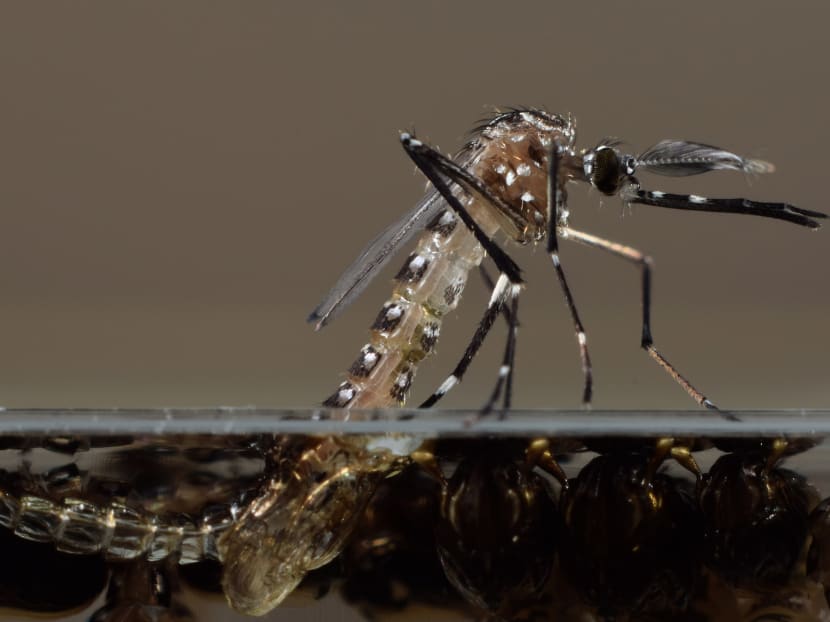Genes affect likelihood of being stung by mosquitoes
LONDON — Scientists have found that the chance of being bitten by a mosquito is written in the genes and some people are just more likely to be attacked no matter how much insect repellent they slap on.

A genetically modified Aedes aegypti mosquito in Oxitec's UK lab. Photo: AP
LONDON — Scientists have found that the chance of being bitten by a mosquito is written in the genes and some people are just more likely to be attacked no matter how much insect repellent they slap on.
It all comes down to a genetic variant that controls body odour. Some people have genes that provide a natural defence against the biting insects, while others are not so lucky.
Researchers at the London School of Hygiene and Tropical Medicine believe they could create a pill to recreate the natural repellent.
Dr James Logan, senior lecturer in medical entomology, said: “If we understand the genetic basis for variation among individuals, it could be possible to develop bespoke ways to control mosquitoes better and develop new ways to repel them.”
Researchers conducted trials with 18 identical and 19 non-identical sets of female twins. Dengue mosquitoes were released into a Y-shaped tube that divides into two sections. They were allowed to fly down either side towards the odour from the participants’ hands to see which twin they were most attracted to.
The study, published in the journal PLOS One, found that the mosquitoes would bite none, or both of the identical twins, but the results were mixed for non-identical twins.
The Daily Telegraph





